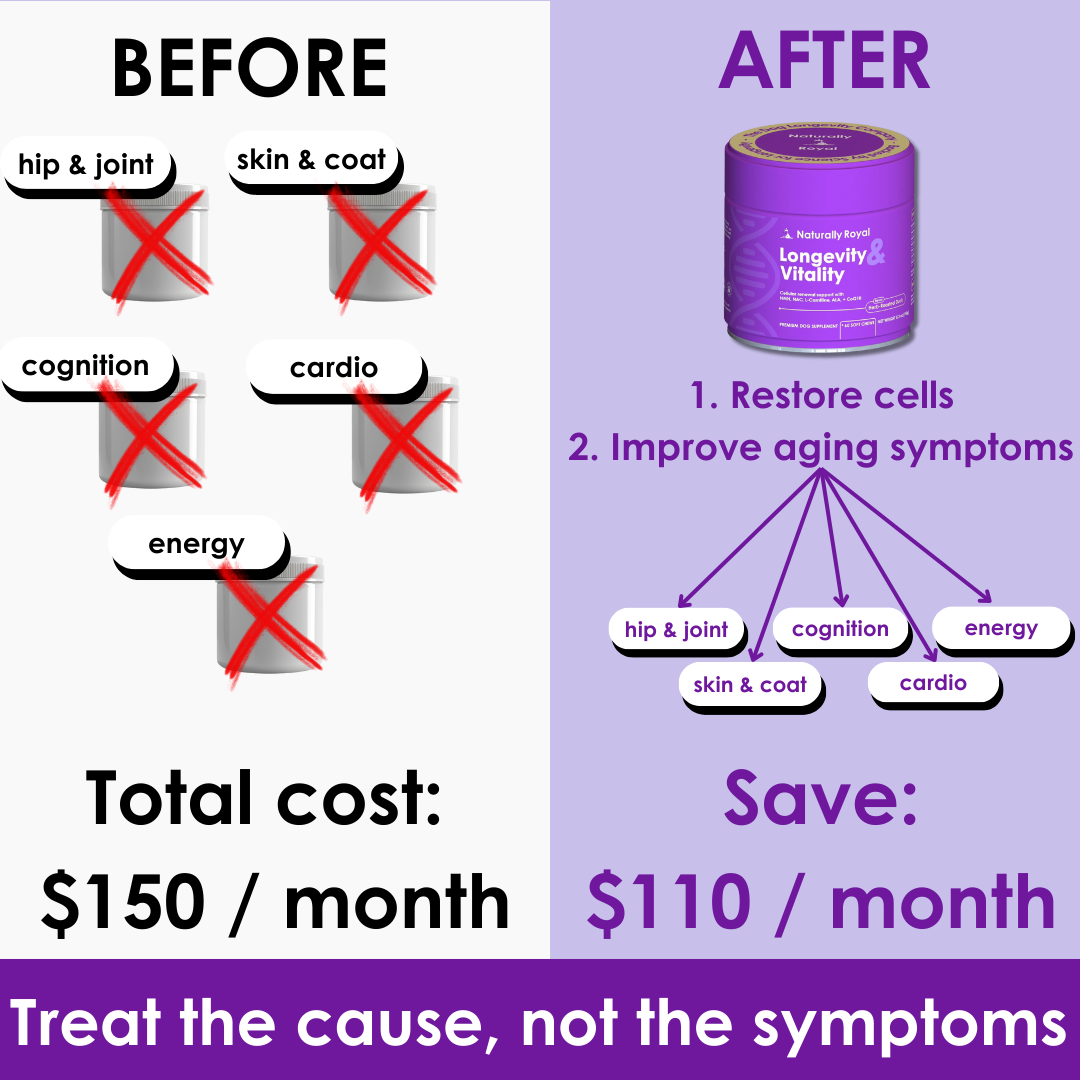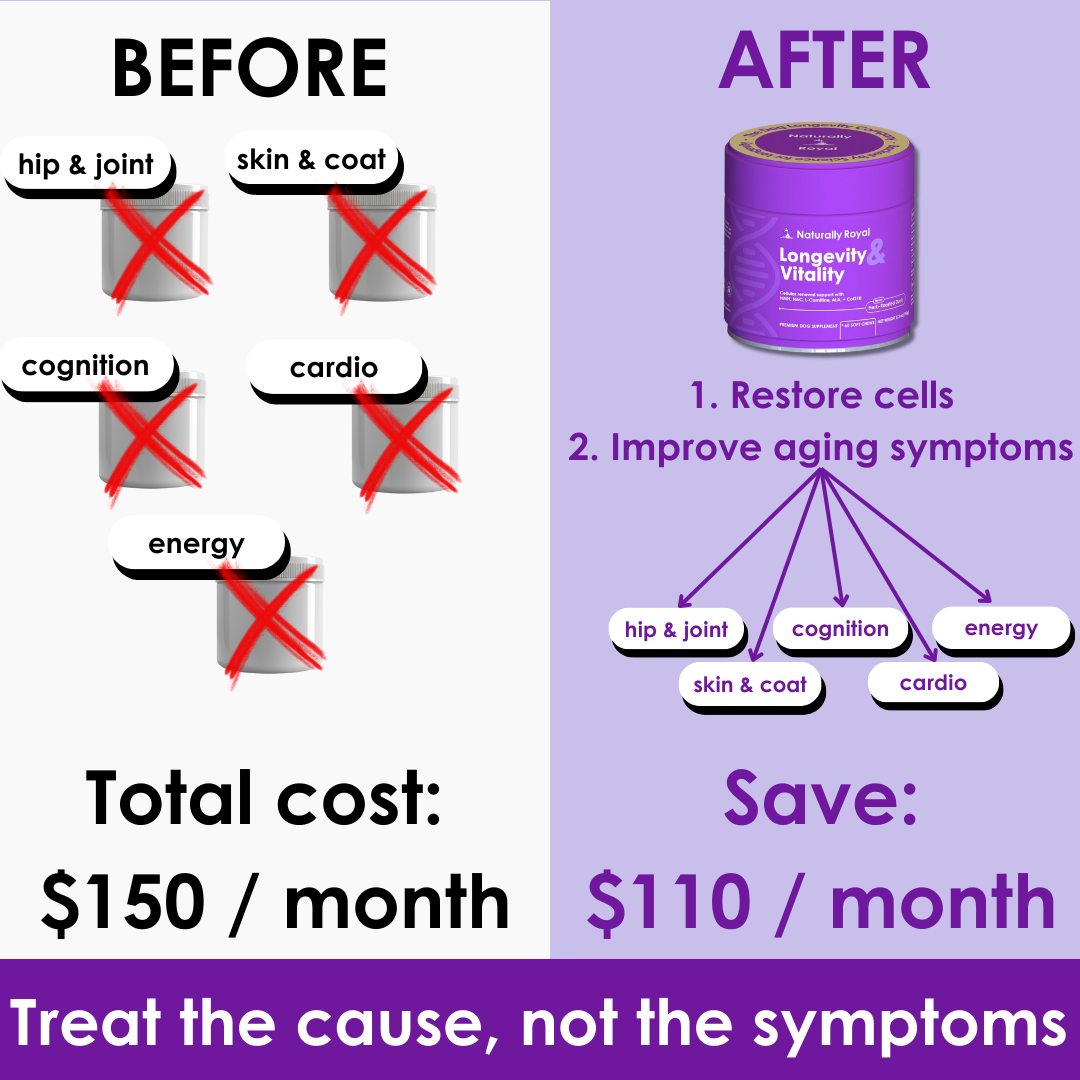Longevity Impact of Separation Anxiety
Separation anxiety is a common issue among dogs, causing distress and behavioral problems when they are left alone. This condition not only affects a dog’s mental health but can also have implications on their overall well-being and longevity. Let's explore what separation anxiety is, how to treat it, and its impact on your dog's lifespan.
Understanding Separation Anxiety: Separation anxiety occurs when a dog becomes excessively anxious when separated from their owner. Symptoms include:
- Excessive barking or howling
- Destructive behavior (chewing furniture, digging)
- House soiling (urinating or defecating indoors)
- Pacing, panting, or drooling
These behaviors can lead to physical harm and increased stress, affecting a dog's overall health.
Treating Separation Anxiety:
-
Training and Behavior Modification:
- Desensitization: Gradually increase the time your dog spends alone to help them get used to your absence. Start with short periods and slowly extend them.
- Counterconditioning: Associate your departure with positive experiences. Offer a treat or toy that they only get when you leave.
-
Creating a Safe Environment:
- Provide a comfortable space with their favorite toys and a piece of your clothing to offer comfort.
- Use calming products like pheromone diffusers or anxiety wraps.
-
Exercise and Mental Stimulation:
- Ensure your dog gets plenty of physical exercise and mental stimulation. A tired dog is less likely to be anxious.
- Interactive toys, puzzle feeders, and regular playtime can help keep their mind engaged .
-
Professional Help:
- In severe cases, consult a veterinarian or a professional dog trainer. They may recommend behavioral therapy or medication to manage anxiety.
Implications on Longevity: Managing separation anxiety effectively can significantly improve a dog's quality of life and potentially extend their lifespan:
- Reduced Stress: Chronic stress from separation anxiety can lead to health problems such as weakened immune systems, digestive issues, and heart conditions. Managing anxiety helps reduce these risks.
- Prevention of Injuries: Dogs with separation anxiety often engage in destructive behaviors that can lead to injuries. Treating anxiety helps prevent self-inflicted harm and promotes safer environments .
- Overall Well-Being: A calm and happy dog is more likely to engage in regular activities, maintain a healthy weight, and have better social interactions, all contributing to a longer, healthier life .
Addressing separation anxiety is crucial for ensuring your dog’s mental and physical health. By implementing proper training, creating a safe environment, providing adequate exercise, and seeking professional help when necessary, you can significantly improve your dog's quality of life and longevity. Always consult your veterinarian for personalized advice and treatment options for your dog's specific needs.
























